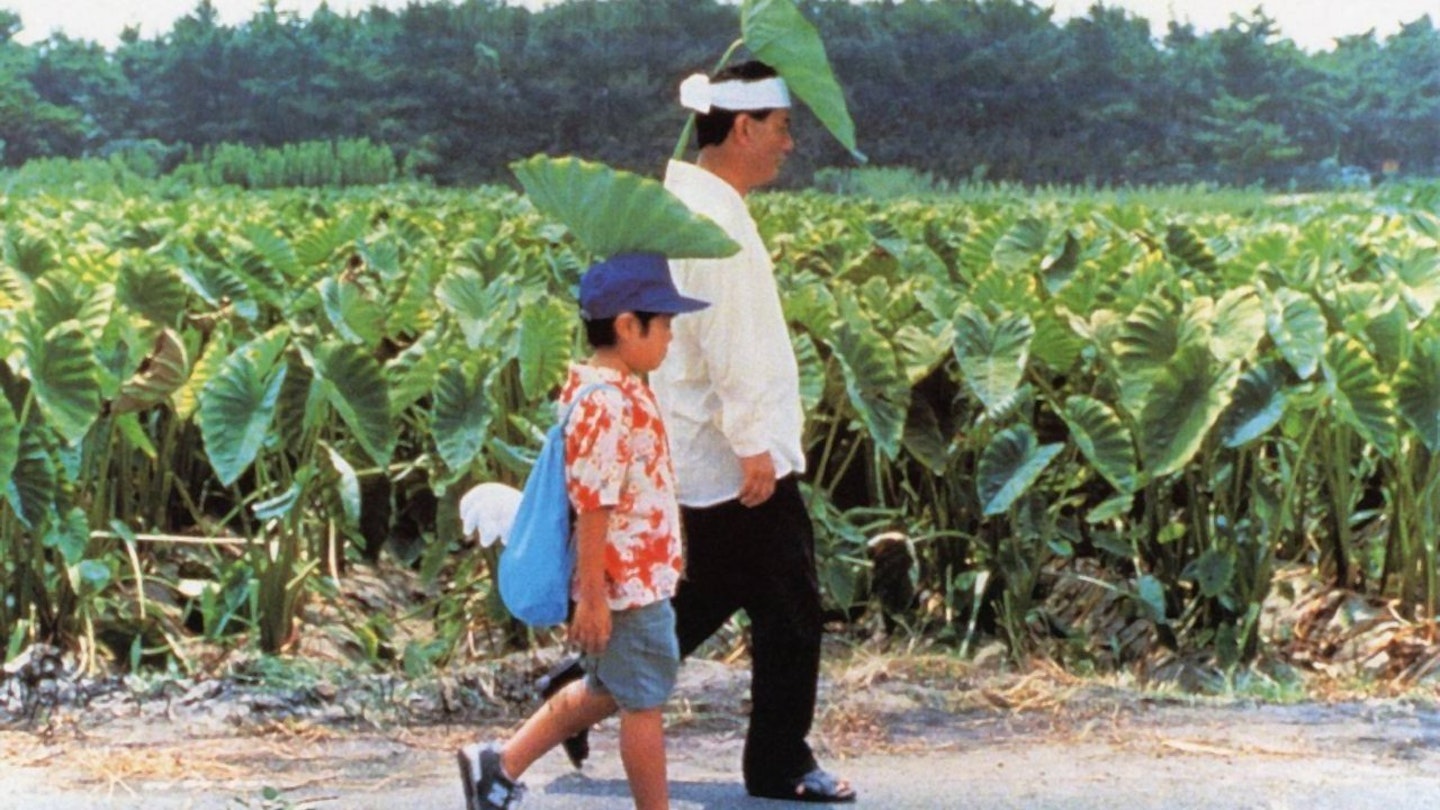Takeshi Kitano made this kinder, gentler film because he was worried he was becoming too identified with the cop-yakuza violence of his best-known works. He still casts himself as a layabout, overly fond of intimidating people and walking off with their money, but is here reformed by learning to empathise with an abandoned kid - whom he initially treats horribly. The doses of ultra-violence so memorable in Sonatine and Hana-Bi recur, but beatings take place between edits - or in one case, in an extreme long-shot - that renders the action comical.
As is so heavily signalled by Kikujiro's anguished cry of, "He's just like me!", Masao is the sort of bright but abandoned child who could easily grow up to be a loser thug like the older man. Along the road, they both make a great effort to see their respective mothers who have shut them out of their lives, but hold back from confronting them: Masao's mother, who has a whole new happy family and a perfect suburban home, seems a greater betrayer than Kikujiro's, who is simply a miserable old lady who is rude to everyone at her rest home.
Although the bittersweet ending is such a foregone conclusion that Kitano even puts it first, and then tells the story in flashback, this in fact allows for a succession of secondary characters - a juggler and a robot imitator, a travelling would-be poet, and two of the least-threatening Hell's Angels in the cinema. Kitano reprises his proven screen persona: slouching but quick to anger, whimsical but tyrannical, granite outside but inner mush. But the solemn young Sekiguchi is a real find, complementing his co-star and never becoming as icky as the brats who'd be up for a Hollywood remake.
